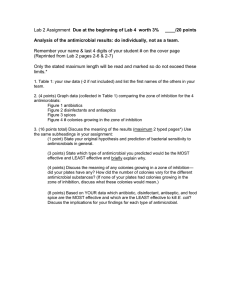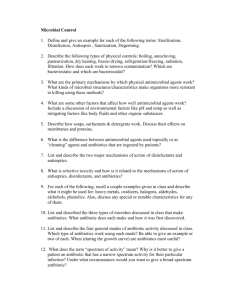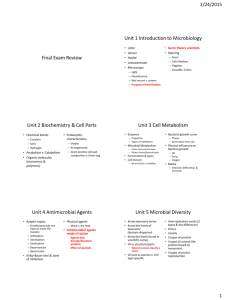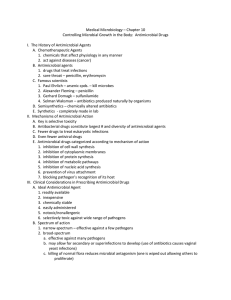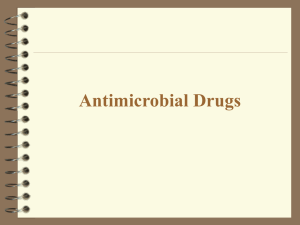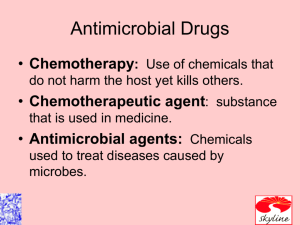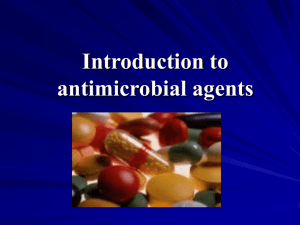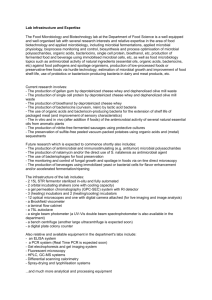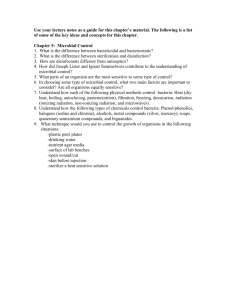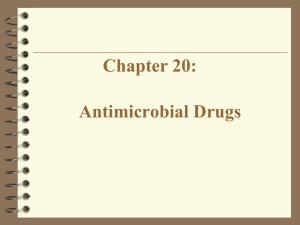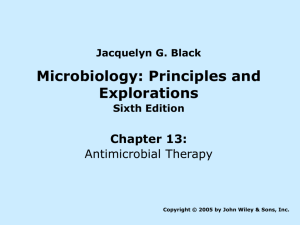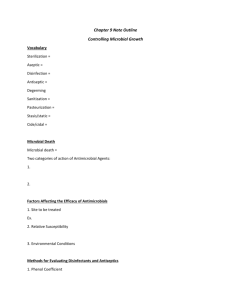Test 2 Review
advertisement
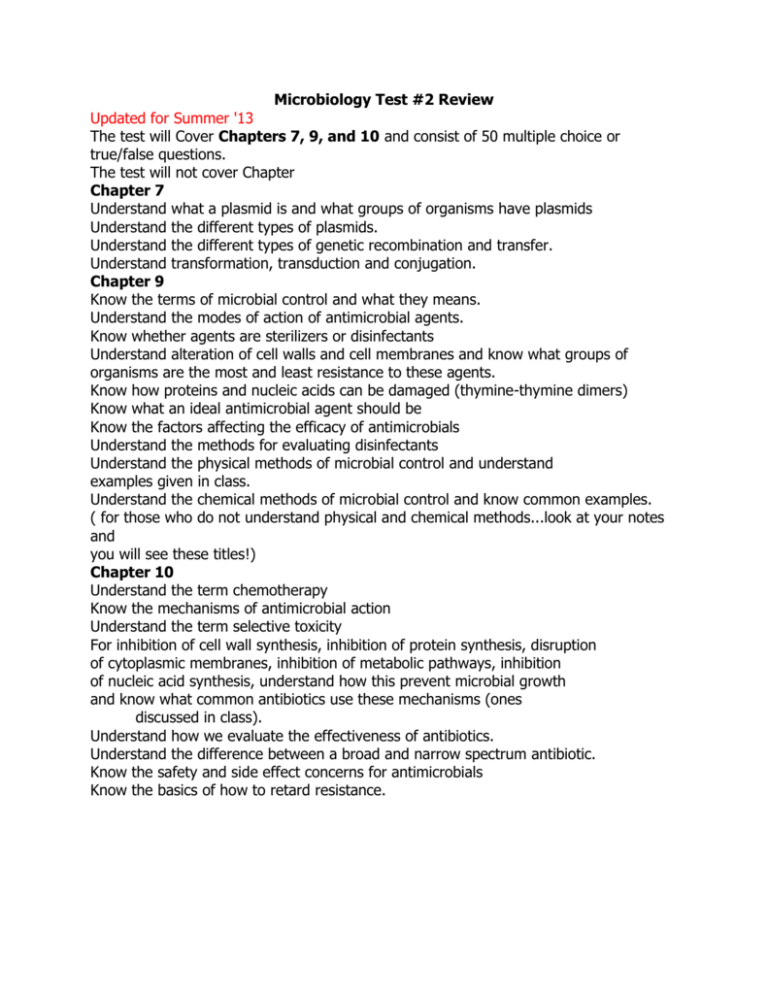
Microbiology Test #2 Review Updated for Summer '13 The test will Cover Chapters 7, 9, and 10 and consist of 50 multiple choice or true/false questions. The test will not cover Chapter Chapter 7 Understand what a plasmid is and what groups of organisms have plasmids Understand the different types of plasmids. Understand the different types of genetic recombination and transfer. Understand transformation, transduction and conjugation. Chapter 9 Know the terms of microbial control and what they means. Understand the modes of action of antimicrobial agents. Know whether agents are sterilizers or disinfectants Understand alteration of cell walls and cell membranes and know what groups of organisms are the most and least resistance to these agents. Know how proteins and nucleic acids can be damaged (thymine-thymine dimers) Know what an ideal antimicrobial agent should be Know the factors affecting the efficacy of antimicrobials Understand the methods for evaluating disinfectants Understand the physical methods of microbial control and understand examples given in class. Understand the chemical methods of microbial control and know common examples. ( for those who do not understand physical and chemical methods...look at your notes and you will see these titles!) Chapter 10 Understand the term chemotherapy Know the mechanisms of antimicrobial action Understand the term selective toxicity For inhibition of cell wall synthesis, inhibition of protein synthesis, disruption of cytoplasmic membranes, inhibition of metabolic pathways, inhibition of nucleic acid synthesis, understand how this prevent microbial growth and know what common antibiotics use these mechanisms (ones discussed in class). Understand how we evaluate the effectiveness of antibiotics. Understand the difference between a broad and narrow spectrum antibiotic. Know the safety and side effect concerns for antimicrobials Know the basics of how to retard resistance.
